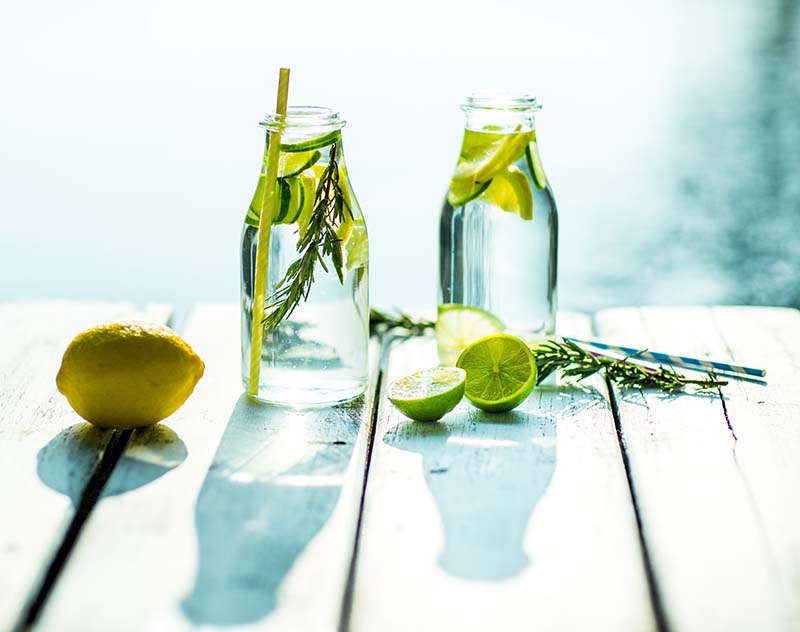At the moment we’re all worried about Covid-19, but your immune system is important at all times.
Unfortunately, there is no magical immune system booster that will bolster your defences overnight, but there are things you can do to protect your immune cells, potentially lowering your susceptibility to infection.
Looking after yourself in body and mind is the best way to improve immunity, and the better your immune system functions, the better your whole body functions.
These tips, from the experts at BMI Healthcare, will help you boost your immune system all year-round.
1. Eat the right foods
Eating a healthy, well-balanced diet is one of the most important things you can do to look after your body.
Focus on whole foods, eating from all the key food groups, and avoid overly salty, fatty, sugary or processed foods.
There are certain foods that are thought to be particularly good at boosting immunity, but really the most important thing is to eat lots of different healthy foods.

2. Get the nutrients your immune system needs
Certain nutrients are essential to the good running of your immune system. These are found in fresh produce – you shouldn’t rely on supplements to get them.
- Vitamin C is an antioxidant that fights free radicals in the body. This vital nutrient is found in many foods, not just citrus fruits. It’s also in leafy green vegetables, bell peppers, strawberries, carrots and many more fruits and vegetables.
- Vitamin E is another powerful antioxidant that helps your body fight infection. Find it in spinach, broccoli, almonds, peanuts and hazelnuts.
- Vitamin B6 is essential to your immune system. Bananas, lean poultry, tuna and chickpeas are all high in this nutrient.
- A daily dose of vitamin D is one of the few things you may need a supplement for, though eating fatty fish (or fortified cereals and spreads) and being exposed to sunlight do help.
- Brightly coloured foods often contain vitamin A, a powerful antioxidant. Carrots, sweet potatoes, pumpkin and squash are all high in this nutrient.
- Folate – also known as folic acid – helps our body create cells, meaning a deficiency can lead to a weakened immune system. Get yours from beans and peas or leafy green vegetables. You’ll also find it in certain fortified foods.
- Iron helps your body carry oxygen to cells, including the white blood cells that are central to the immune system. Find it in lean poultry or in dark, leafy greens.
- It’s thought that selenium plays a crucial role in the functioning of our body’s defences. Find it in garlic, broccoli, sardines, tuna and mushrooms, among many other foods.
- Zinc is thought to help control inflammation. Zinc is found in oysters, crabs, poultry, beans and chickpeas.

3. Exercise more
Regular exercise can strengthen your immune system, as well as helping you sleep better and reducing your stress levels – two things that have an impact on immunity.
Regular exercise has been shown to improve immune response even in those with weakened immune systems.
4. Control your stress levels
Stress and anxiety can have a physical effect on our bodies, including a negative impact on our natural defences. This is particularly true if you are stressed over a long period of time.
One study even found a link between chronic stress-related conditions and autoimmune diseases.
Everyone gets stressed now and again, so it’s a good idea to find a few stress-busting techniques that work for you. Try breathing techniques, yoga or meditation.

5. Get enough sleep
While you sleep, your immune system produces proteins called cytokines, which target infection and inflammation. These are also released during sleep, meaning losing out on shut-eye could seriously impact your defences.
Most adults need around eight hours of good quality sleep a night. Some will need more, some less. If you regularly feel tired throughout the day, you probably aren’t getting enough sleep.
6. Have a healthy, happy gut
The health of your digestive tract has a huge impact on the health of your whole body, and your immune system is no different. A healthy gut microbiome encourages healthy defences.
7. Maintain good personal hygiene
It’s all well and good doing all the above things to make sure your immune system is fighting fit, but are you taking measures to stop germs entering your body in the first place?
The most important of these is also the simplest: keeping your hands clean.
Wash your hands for 20 seconds (two rounds of Happy Birthday) using warm water and soap before cooking or eating and after you cough or sneeze.
Do the same after you use the bathroom or touch public surfaces.
Washing your hands is listed as one of the key things you can do to protect yourself from the coronavirus.
If you’ve touched something outside of your home and haven’t washed your hands since, don’t touch your face.
